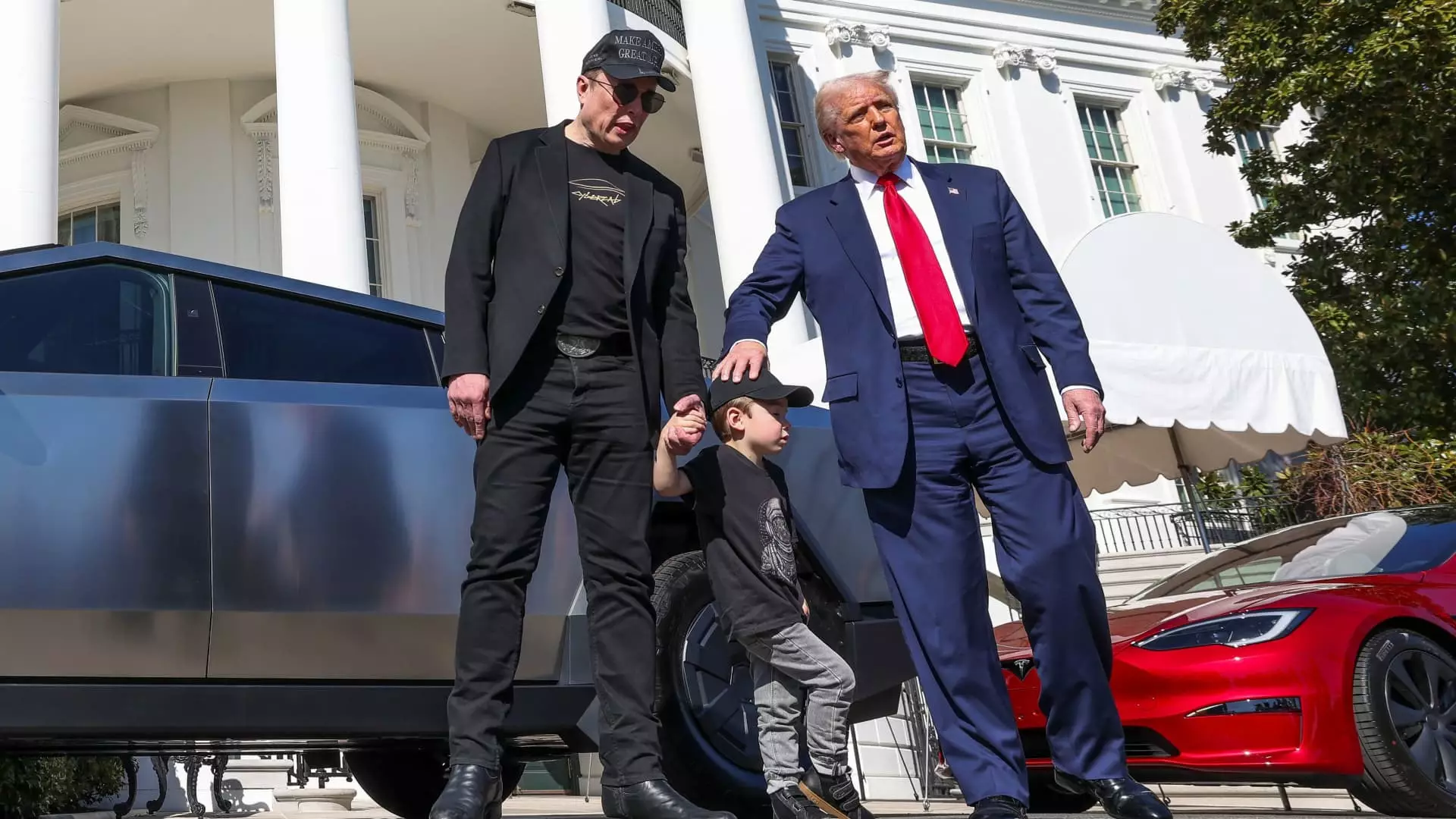Elon Musk has long been a polarizing figure, capturing public attention through his innovative pursuits with Tesla, SpaceX, and X. Nevertheless, his recent entanglements in political discourse seem to have raised more eyebrows than applause. A recent Morgan Stanley survey has revealed that an astonishing 85% of participants believe Musk’s foray into politics is detrimentally affecting Tesla’s business operations. This sentiment echoes a growing concern among investors that the charismatic CEO’s political maneuvers are steering the company into murkier waters at an uncomfortably rapid pace.
While Musk’s ambitions to push boundaries in technology are commendable, his simultaneous engagement in the political arena threatens to overshadow Tesla’s foundational goals of sustainability and innovation. The very essence of Tesla was predicated on disrupting the automotive sector with electric vehicles, but now, it appears Musk’s voice is slicing through that mission, leaving behind a trail of skepticism.
Survey Signals Turmoil: Stakeholders Respond
The Morgan Stanley survey, although limited to a small group of just 245 respondents, becomes significant when 85% of them express concerns about the negative ramifications of Musk’s political activities. Surprisingly, while a minority view these activities as minor or even beneficial, the overall mood seems bleak. This translates to much more than just anecdotal evidence; these opinions reflect a troubling trend where investors are beginning to question Musk’s leadership.
The number of investors anticipating a decline in Tesla’s deliveries for the year adds another layer of unease. Nearly 59% of those surveyed expect fewer deliveries in 2025 than in 2024. For a company so intricately woven into the narrative of the green revolution, this decline not only impacts sales figures but also jeopardizes Tesla’s far-reaching mission of mitigating climate change—a mission many had hoped Musk would champion without political interference.
The Financial Fallout: The Stock Plunge
The stakes have never been higher—as Tesla’s stock has plummeted nearly 40% this year. Yet, amidst this alarming statistic, a fraction of respondents (45%) still maintains a glimmer of hope that shares could recover by at least 11% by year’s end. This dichotomy presents an intriguing contradiction within the investor sentiment: while many acknowledge the peril of Musk’s political distractions, a sliver of them still clings to optimism for a financial rebound.
What makes this situation even more precarious is Musk’s acknowledgment that navigating his political obligations has made running Tesla increasingly arduous. After the company experienced its worst trading session since 2020—due in part to the backlash against his political roles—the prospect of combining his ambitious ventures with such controversial political affiliations appears reckless.
The Broader Implications of Musk’s Political Noise
Musk’s role in the government, particularly his support of President Donald Trump and contributions to the Department of Government Efficiency, has stirred significant controversy. The rapid pace at which his brand of governance operates seems to clash with what many perceive as the thoughtful, deliberate approach needed for transforming the automobile industry into a bastion of sustainability. Critics have rightly pointed out that the crises surrounding Tesla’s reputation may indeed resonate with past instances of corporate overreach in public policy.
Moreover, Musk’s recent claim that violence at Tesla dealerships could be labeled as acts of domestic terrorism reflects a concerning trend of conflating business interests with cautionary governmental rhetoric. This not only portends negative repercussions for Tesla but also raises questions about the ethics of a CEO stepping into such charged territories, prioritizing personal branding over corporate integrity.
As Musk continues to monopolize headlines, the long-standing accomplishments of Tesla risk being overshadowed, revealing that an unrestrained pursuit of both revolutionary business and controversial political engagement may not be a sustainable model. Indeed, these turbulent transitions could leave Tesla’s brand value irreparably tarnished if not managed with foresight and awareness.
It’s essential for stakeholders—from investors to consumers—to engage critically but constructively with Musk’s trajectory. Ultimately, the echoes of his political projections will resonate far beyond the stock market, affecting not only Tesla’s future but the larger landscape of sustainable innovation.

